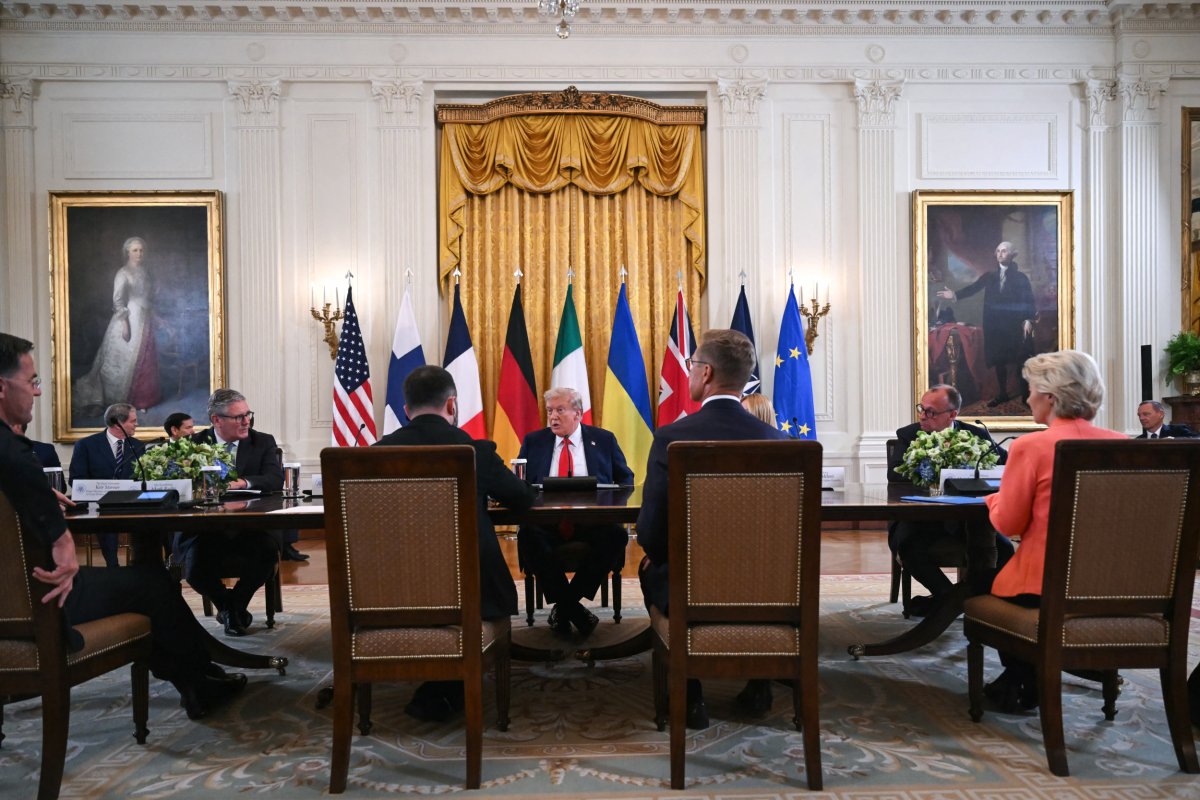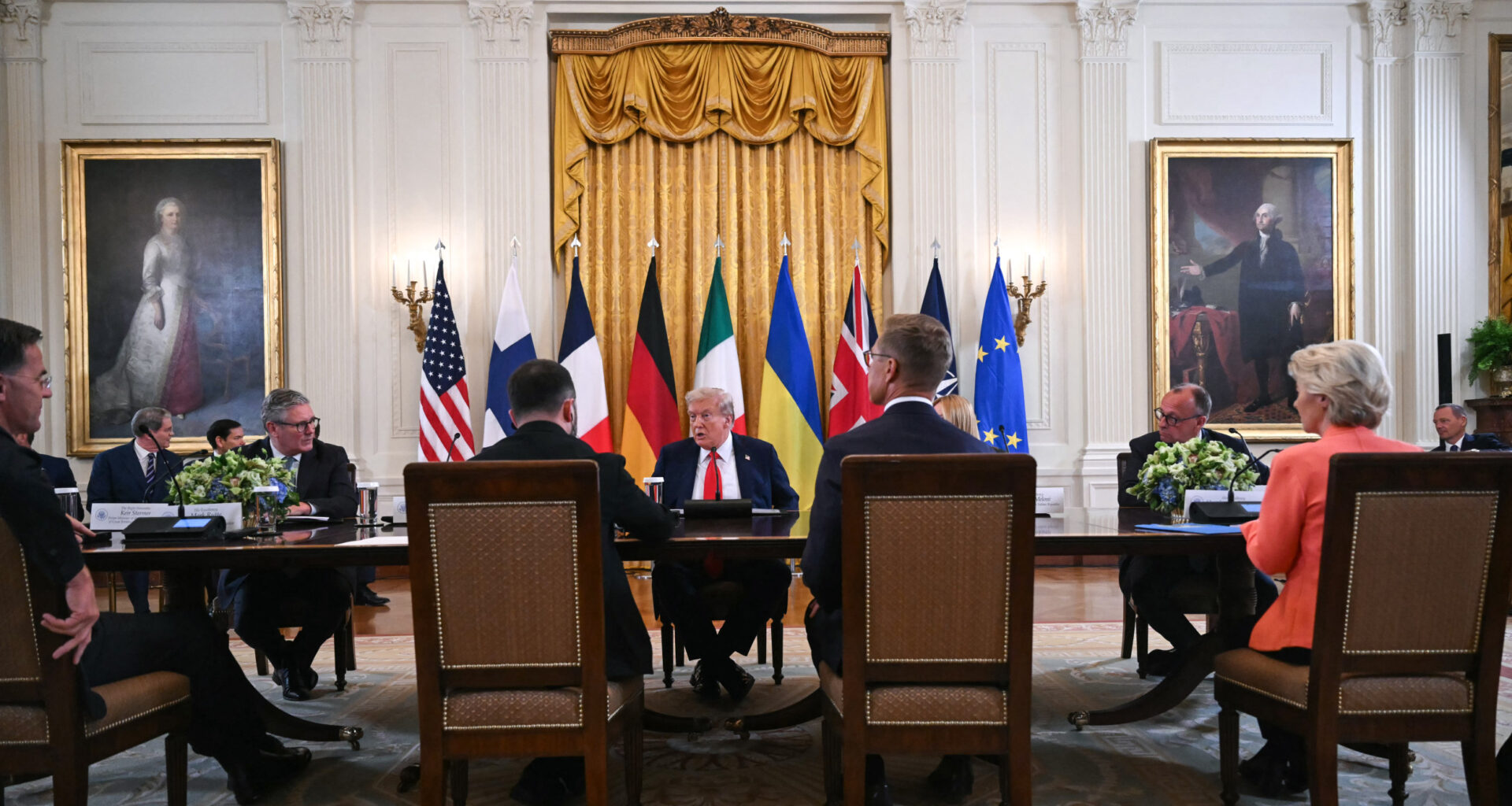The United States and European Union on Thursday released the first official text of a new trans-Atlantic trade agreement, confirming plans to slash tariffs on autos and industrial goods—contingent on Europe enacting its pledge to eliminate duties on U.S. exports.
Why It Matters
The Framework targeted core sectors of the U.S.-EU economic relationship—autos, pharmaceuticals, semiconductors, energy, and agriculture—and promised significant investment and energy purchase commitments that could reshape supply chains and industrial strategy on both sides of the Atlantic.

(L/R) NATO Secretary-General Mark Rutte, British Prime Minister Keir Starmer, Ukrainian President Volodymyr Zelensky U.S. President Donald Trump, Finnish President Alexander Stubb, German Chancellor Friedrich Merz, and European Commission President Ursula von der Leyen participate…
(L/R) NATO Secretary-General Mark Rutte, British Prime Minister Keir Starmer, Ukrainian President Volodymyr Zelensky U.S. President Donald Trump, Finnish President Alexander Stubb, German Chancellor Friedrich Merz, and European Commission President Ursula von der Leyen participate in a meeting in the East Room of the White House in Washington, D.C, on August 18, 2025.Images)
More
Andrew Caballero-Reynolds/Getty Images
What to Know
The U.S. will reduce tariffs on European autos and auto parts to 15 percent, down from the previous 27.5 percent, once the EU formally introduces legislation to eliminate its own tariffs on U.S. industrial goods. The timing is synchronized: the lower U.S. rates will take effect the same month the EU advances its proposal.
Beyond autos, the U.S. is committing to cap tariffs at 15 percent on European pharmaceuticals, semiconductors, lumber, and aircraft components. The EU, in turn, must provide preferential access for U.S. seafood, agricultural products, and natural resources such as cork.
The deal opens the door to discounted rates on steel, aluminum, and derivative products under a quota system. This marks a departure from the administration’s earlier stance to maintain 50 percent tariffs on metals, aimed at curbing trade deficits.
The EU pledged not to impose network usage fees and will explore easing compliance burdens tied to its carbon import levy and sustainability reporting rules. These changes could benefit small- and medium-sized U.S. businesses navigating EU regulations.
The EU intends to purchase at least $40 billion in U.S. artificial intelligence chips and significantly expand its procurement of American military equipment. It also reaffirmed plans to buy up to $750 billion in U.S. energy products through 2028.
European companies are expected to invest heavily in U.S. sectors such as advanced manufacturing, semiconductors, and pharmaceuticals. The EU has also committed to a $600 billion investment target in the U.S. economy.
What People Are Saying
U.S.-EU joint statement, released Thursday morning, said: “The United States and the European Union are pleased to announce that they have agreed on a Framework on an Agreement on Reciprocal, Fair, and Balanced Trade (“Framework Agreement”). This Framework Agreement represents a concrete demonstration of our commitment to fair, balanced, and mutually beneficial trade and investment. This Framework Agreement will put our trade and investment relationship—one of the largest in the world—on a solid footing and will reinvigorate our economies’ reindustrialization. It reflects acknowledgment by the European Union of the concerns of the United States and our joint determination to resolve our trade imbalances and unleash the full potential of our combined economic power. The United States and the European Union intend this Framework Agreement to be a first step in a process that can be further expanded over time to cover additional areas and continue to improve market access and increase their trade and investment relationship.”
What Happens Next
The U.S. and the EU said they would document and implement the agreement following their internal procedures; the White House statement set the Framework as a first step that could be expanded over time. The deal has not yet been made final.
